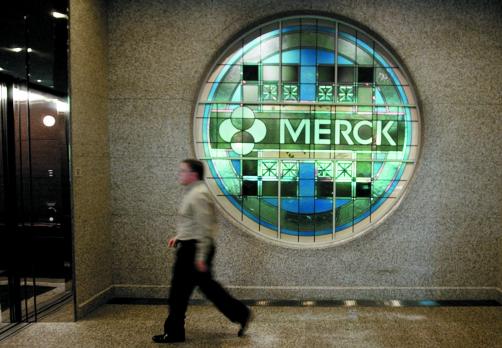
Merck does cancer drug deal with Endocyte
pharmafile | April 17, 2012 | News story | Research and Development, Sales and Marketing | Cancer, Endocyte, Merck, NSCLC, vintafolide
Merck is to pay $120 million to US biopharma company Endocyte as part of a deal to develop and commercialise a late-stage cancer treatment.
The upfront payment will give Merck most of the rights to Endocyte’s novel investigational therapeutic candidate vintafolide (EC145).
In return Endocyte, after what it calls a ‘rigorous selection process’ to choose Merck, stands to receive up to $880 million in milestone payments based on various goals for vintafolide, in six cancer indications.
The drug is currently being evaluated in two of these: the Phase III PROCEED trial for platinum-resistant ovarian cancer, and a Phase II trial for non-small cell lung cancer (NSCLC).
Last month the European Union granted orphan drug status to vintafolide, and Endocyte plans to file a marketing authorisation application after June this year.
“In addition to pursuing the lead indication of platinum-resistant ovarian cancer, Merck plans to further evaluate its potential for treatment of multiple other cancer types,” said Peter Kim, president of Merck Research Laboratories.
If all goes well, Endocyte will receive an equal share of the profit in the US – where it may co-promote vintafolide – as well as a double digit percentage royalty on sales in the rest of world, where Merck has exclusive promotion rights.
Endocyte will fund most of the rest of PROCEED, while Merck will pick up the tab for all other development activities and costs – and have all decision rights – for vintafolide.
Merck’s stated strategy is to build a portfolio of oncology therapeutics with companion diagnostics. The two ongoing trials of the new drug also involve Endocyte’s investigational companion diagnostic agent etarfolatide (EC20) – for which Endocyte keeps the rights.
Vintafolide itself is an injectable drug consisting of folate (vitamin B9) linked to chemotherapy agent desacetylvinblastine monohydrazide (DAVLBH), and is designed to target fast-growing cancer cells that actively take up folate via the folate receptor.
As well as ovarian and NSCLC cancer, the folate receptor is expressed in cancers including, breast, colon and kidney.
Ovarian currently has the worst outcomes of all gynaecological cancers, and is not a disease for which there are a great number of competing treatments.
In January, Roche’s Avastin received the green light to treat women in the UK, making it the first targeted drug to gain EU approval for the disease.
Treatments were previously limited to treatment with chemotherapy and surgery. Avastin (bevacizumab) can now be used in combination with standard chemotherapy as a first-line treatment after surgery.
A Phase III study showed that this combination helped women live an average of six months longer but failed to show an increase in overall survival.
Final data on survival is not expected until next year and the firm plans to wait for this before it submits the drug to the FDA.
Adam Hill
Related Content

Merck to acquire Mirus Bio for $600m
Merck has announced that it has signed a definitive agreement to acquire Mirus Bio for …

Merck shares data from phase 3 trial of Keytruda for gastric cancers
Merck, known as MSD outside of the US and Canada, has announced data from the …

TILT Biotherapeutics shares data on TILT-123 with Keytruda for ovarian cancer treatment
TILT Biotherapeutics has announced promising preliminary safety and efficacy data from its ongoing phase 1 …







